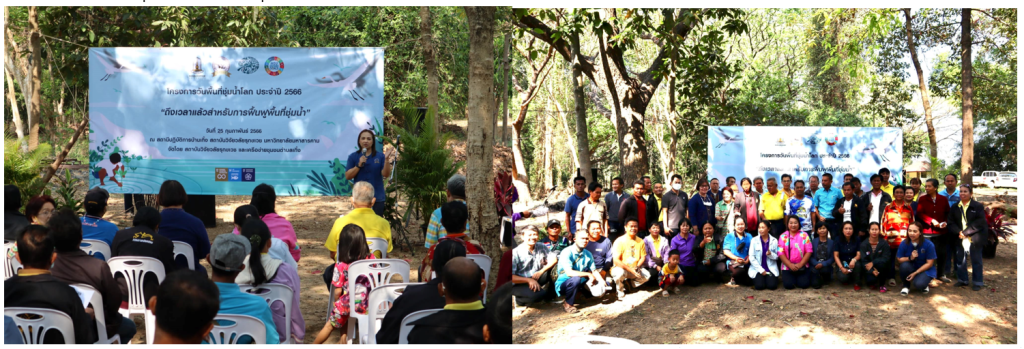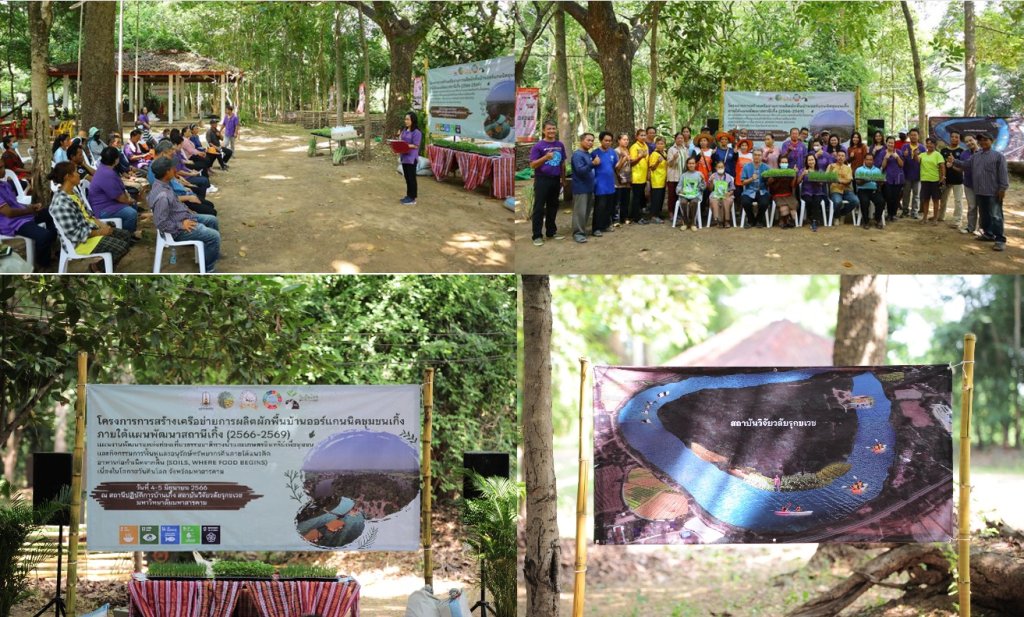1. World Wetlands Day, 2023 in Kud daeng oxbow lake, MSU
World Wetlands Day 2023 at Kud Daeng, Mahasarakham University
The Walai Rukhavej Botanical Research Institute of Mahasarakham University organized the 2023 World Wetlands Day event on February 25, 2023, at Ban Kerng Field Station, in collaboration with the local community and leaders of Kerng Sub-district. The event aimed to raise awareness of the importance and value of the Kud Daeng oxbow lake by organizing an exhibition at the wetland learning center for the community and stakeholders. The objective was to foster cooperation between the community and local agencies in managing wetland areas, particularly through creating conservation zones for aquatic life and supporting local fisheries for preservation purposes.
Activities included an exhibition at the Ban Kerng Field Station's Wetland Learning Center and a training session on organic fertilizer production to reduce impacts on wetland areas. This initiative aligns with Mahasarakham University’s commitment to SDG Goal 14: Life Below Water, promoting awareness and knowledge for the sustainable conservation and management of ecosystems in the Chi and Mekong River basins.


2. Creating a network for producing local organic vegetables around Kud daeng oxbow lake, MSU
Project to Build an Organic Local Vegetable Production Network in Koeng Community under the Koeng Station Development Plan (2023-2026), Year 1
On June 4-5, 2023, Walai Rukhavej Botanical Research Institute of Mahasarakham University organized a project to establish a community network for organic indigenous vegetable production in Kerng. This initiative is part of the Kerng Field Station Development Plan (2023-2026), which aims to develop natural water-based tourism and organic agriculture for community benefit and to restore and conserve soil resources under the theme "Soils, where food begins" in honor of World Soil Day. The event was held at Kud Daeng (Oxbow Lake) in Ban Kerng Field Station, Maha Sarakham Province.
The project's objectives were to (1) create a network for the organic production of local vegetables, (2) protect the environment and wetlands ecosystem by reducing the use of chemical fertilizers, and (3) support the station’s tourism and organic agriculture development plan for the community.
The activities included lectures and hands-on training in organic vegetable production, selection of vegetable varieties for natural water-based tourism and organic agriculture, climate adaptation strategies for riverbank farming communities along the Chi River, and organic fertilizer production to support soil restoration and conservation. The project engaged 32 local farmers from Kerng and aligns with the university’s SDG commitments, specifically SDG Goal 2 (Zero Hunger), Goal 13 (Climate Action), and Goal 14 (Life Below Water).

